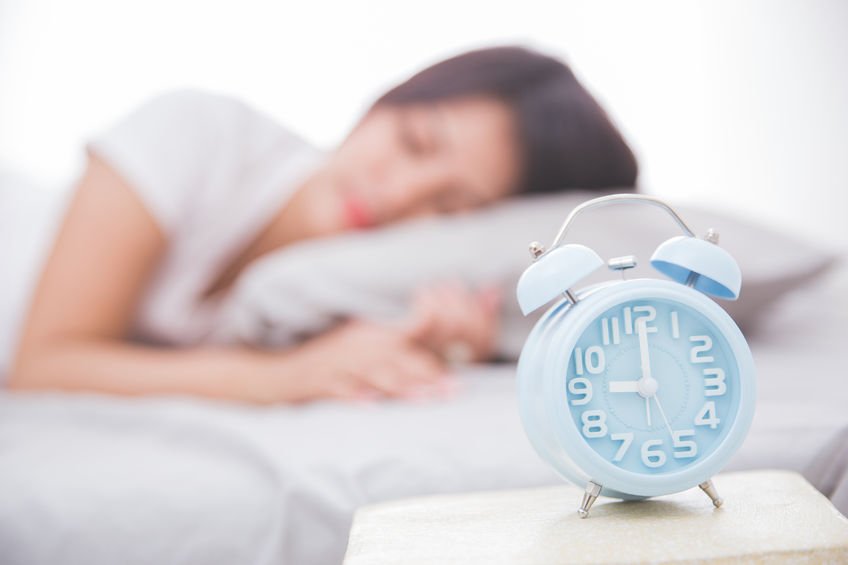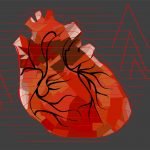Social Jet Lag = Key Circadian Indicator of Poor Health Outcomes
A recent study shows that ‘social jet lag’ is a key circadian indicator of poor health outcomes, including increases in heart disease.1 ‘Social jet lag’ is when we go to bed and arise later on weekends than during the week. Sleep is an integral component of maintaining circadian biorhythms, such as cortisol and thyroid function, and growth hormone. The circadian rhythm also contributes to the regenerative capacity of the body, which occurs at night, while we sleep.2 Missing sleep on the weekend – social jet lag – is incredibly common, and socially supported, but may be associated with as much as an 11% increase in heart disease for every hour of social jet lag.
Sleep and Healthy Activity, Diet, Environment, and Socialization (SHADES) Study
The study, conducted at the University of Arizona, analyzed 984 adults between the ages of 22 and 60 years from the Sleep and Healthy Activity, Diet, Environment, and Socialization (SHADES) study. Social jet lag was determined using the Sleep Timing Questionnaire and then subtracting weekday mean sleep time from weekend mean sleep time. Overall health was self-reported on a standardized scale – survey questions looked at sleep duration, insomnia, fatigue, sleepiness, and cardiovascular disease.
The Results
The results correlated social jet lag with overall poorer health, increased sleepiness, fatigue, and worse mood. Each hour of deviated sleep during the weekend was associated with an 11% increase in likelihood of developing heart disease. The important part of this study is that the duration of sleep, and insomnia, both occurred independently of social jet lag. This points to sleep regularity, rather than duration alone, playing a key role in health.
The American Academy of Sleep Medicine recommends 7 hours or more of sleep per night. This research suggests that this sleep would better serve health when it is obtained on a consistent schedule.
Sources
- American Academy of Sleep Medicine. “Social jet lag is associated with worse mood, poorer health and heart disease: Delaying your sleep schedule on weekends has health consequences.” ScienceDaily. ScienceDaily, 5 June 2017
- Mônico-neto M, Dáttilo M, Ribeiro DA, et al. REM sleep deprivation impairs muscle regeneration in rats. Growth Factors. 2017;35(1):12-18.
Image Copyright: <a href=’https://www.123rf.com/profile_ferli’>ferli / 123RF Stock Photo</a>
 Node Smith, associate editor for NDNR, is a fifth year naturopathic medical student at NUNM, where he has been instrumental in maintaining a firm connection to the philosophy and heritage of naturopathic medicine amongst the next generation of docs. He helped found the first multi-generational experiential retreat, which brings elders, alumni, and students together for a weekend campout where naturopathic medicine and medical philosophy are experienced in nature. Three years ago he helped found the non-profit, Association for Naturopathic ReVitalization (ANR), for which he serves as the board chairman. ANR has a mission to inspire health practitioners to embody the naturopathic principles through experiential education. Node also has a firm belief that the next era of naturopathic medicine will see a resurgence of in-patient facilities which use fasting, earthing, hydrotherapy and homeopathy to bring people back from chronic diseases of modern living; he is involved in numerous conversations and projects to bring about this vision.
Node Smith, associate editor for NDNR, is a fifth year naturopathic medical student at NUNM, where he has been instrumental in maintaining a firm connection to the philosophy and heritage of naturopathic medicine amongst the next generation of docs. He helped found the first multi-generational experiential retreat, which brings elders, alumni, and students together for a weekend campout where naturopathic medicine and medical philosophy are experienced in nature. Three years ago he helped found the non-profit, Association for Naturopathic ReVitalization (ANR), for which he serves as the board chairman. ANR has a mission to inspire health practitioners to embody the naturopathic principles through experiential education. Node also has a firm belief that the next era of naturopathic medicine will see a resurgence of in-patient facilities which use fasting, earthing, hydrotherapy and homeopathy to bring people back from chronic diseases of modern living; he is involved in numerous conversations and projects to bring about this vision.





